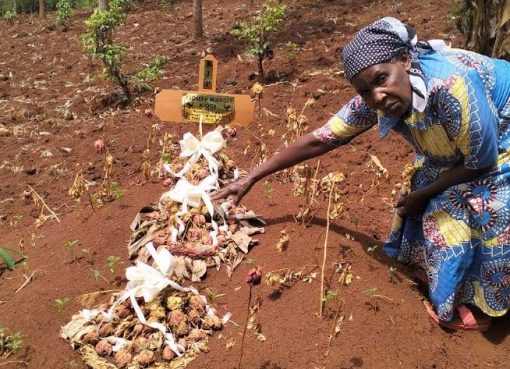International maize and wheat improvement center Country representative Dr. Steven Mugo has called on National Environmental Management Authority (NEMA) to approve pending applications on BT maize for National Performance trials saying it will enhance food security in the Country.
Either Dr. Mugo said, the existing ban on genetically modified foods has also not helped the matter saying the onus is with the Government and Agencies to ensure the ban is lifted and approval granted.
According to Dr. Mugo, Scientists in the Country have for the last 10 years conducted trials on various varieties of BT maize that is drought and pests resistant and the results have been overwhelmingly positive.
He said the delay in getting approvals for National Performance Trials (NPT) and finally the release of BT maize and commercialization is an injustice to the farmers who are currently not getting value for money for varieties they plant.
Dr. Mugo spoke yesterday during a tour of Kiboko Centre that has been carrying out the confined field trials operated by Kenya Agricultural and Livestock Research Organization where the TELA maize project has been running.
He was accompanied by various stakeholders among them representatives from the National performance trials committee (NPTC) and National Variety Release Committee (NVRC) who are expected to give their recommendations.
Dr. Mugo says even as they wait for the environmental impact assessment certification from NEMA, they have made enormous progress on BT maize saying time is ripe for the Government to embrace it.
“We believe in technology that will enable farmers control pests and enhance food security in the Country,” he said.
Dr. Mugo said farmers are always incurring losses due to the current high prices of pesticides saying some can’t afford to buy pesticides.
“Although pesticides are a control, they are harmful to the farmers and the environment. We believe that TELA project which is coordinated by AATF, CYMMT and Bayer in seven African countries (South Africa, Mozambique, Kenya, Tanzania, Uganda, Ethiopian and Nigeria) is an option for farmers to control pests and also gain on food security,” Dr Mugo emphasized.
Prof Paul Kimani of NVRC on the other hand said the technology will be a major milestone for farmers once BT maize is approved by the relevant authorities.
He said it is evident after the trials conducted have shown that the BT maize has a high resistance to pests such as Fall army worm and called on NEMA to accelerate the approvals so that farmers can benefit from the technology.
He said farmers don’t have to use chemicals any more saying resistance in crops can be genetically controlled.
According to Prof Kimani, the issues raised in terms of security and safety of the maize have been addressed and the relevant bodies given the go ahead on the same.
He said they are engaging Parliament as well as other bodies to ensure the ban on GMOs is lifted.
Erick Manyasa a sorghum breeder and a member of the NPTC said it is evident that the varieties show great tolerance to pests and drought and once they have clearance they will release them to the public.
“We have come a long way and finally there is light at the end of the tunnel. We have seen BT varieties that are showing great tolerance and resistance to stem borers and fall army worm. Our role today was to see what is on the ground as a committee so that we make recommendations on the release once the approvals are ready,” he said.
Manyasa said they can confidently say they have a product that farmers can use to fight pests and drought.
KEPHIS representative James Muthee said while NBA has given its approval, NEMA must now approve the varieties before they are released to farmers.
He said BT maize will ensure farmers get high yields adding that they have the protocols for BT maize and they hope they will carry out the process to the end once they have the approvals.
By Wangari Ndirangu





